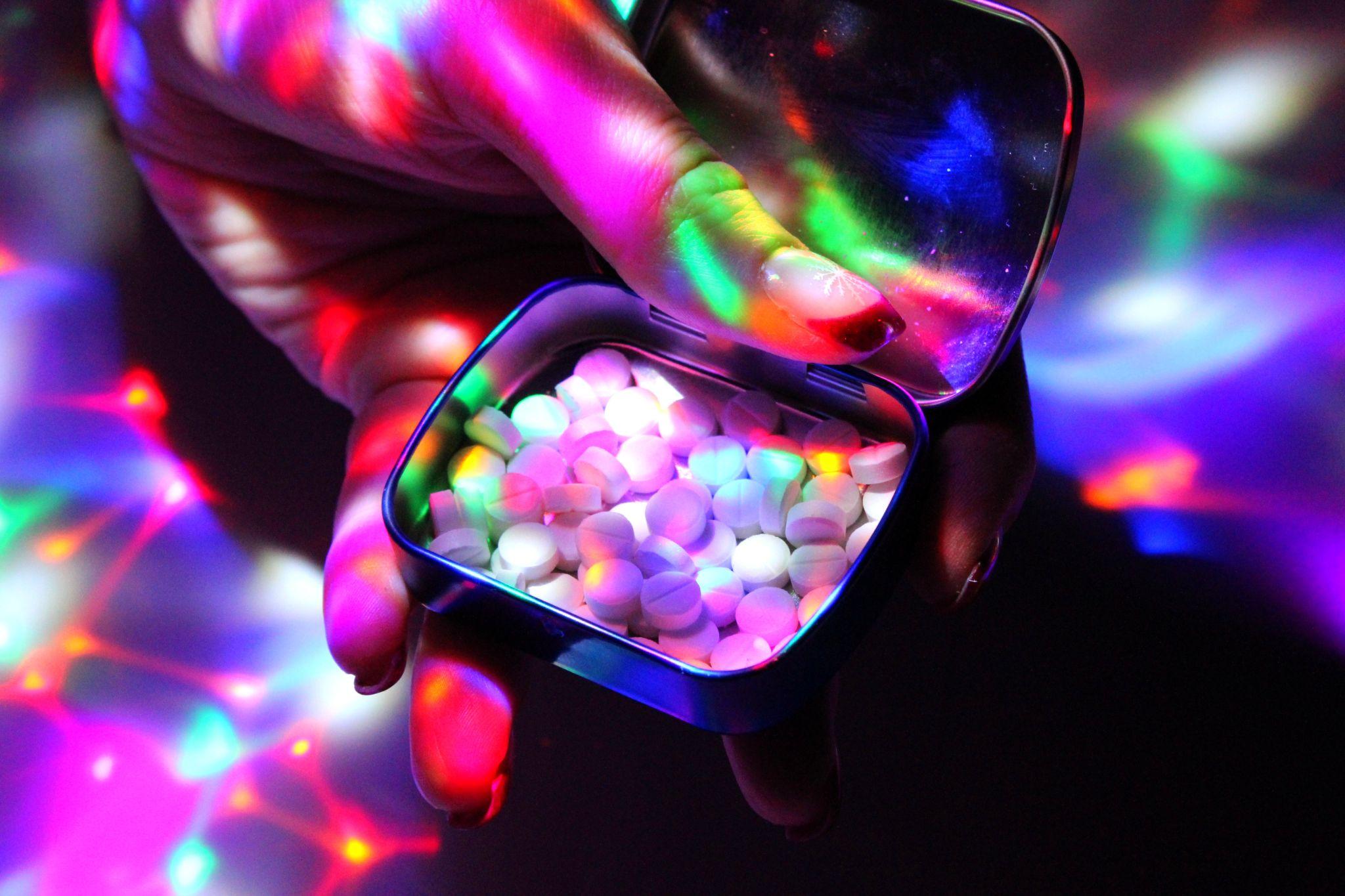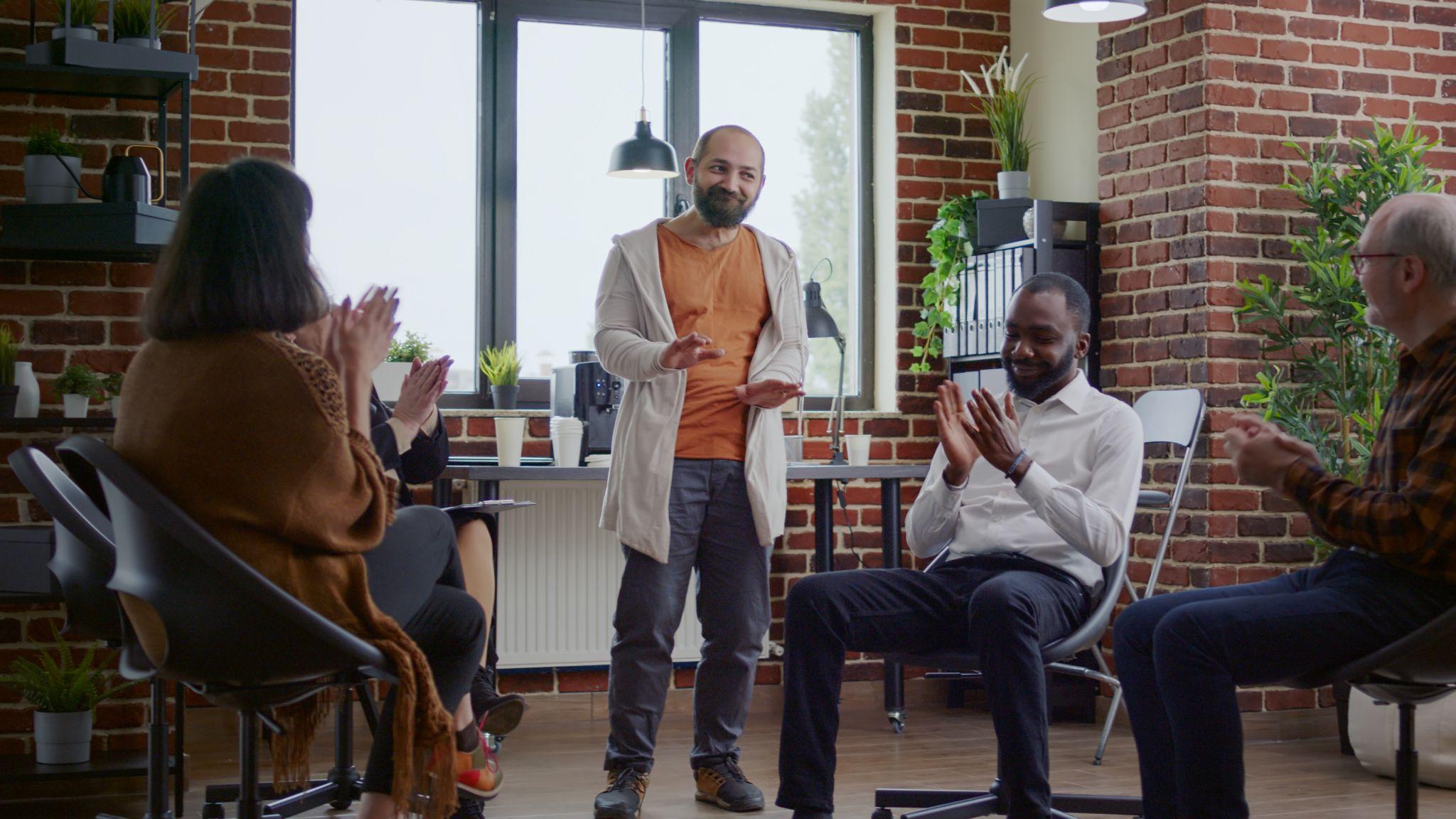Identifying the Signs & Symptoms of Club Drug Addiction
Sections: Stages of Addiction | The Signs | Withdrawal Symptoms | How You Can Help | Self-Screening Questions | Getting Treatment
In the United States, club drugs have become a dangerous part of the social “party” culture for adults, teens, and even some pre-teens. According to data from the 2022 National Survey on Drug Use and Health from the Substance Abuse and Mental Health Services Administration (SAMHSA), 3.0% of Americans aged 12 or older (approximately 8.5 million people) reported using Hallucinogens, like Ecstasy, in the past year. The highest usage was among young adults aged 18 to 25 (7.7% or 2.7 million people), followed by adults aged 26 or older (2.5% or 5.5 million people), and then adolescents aged 12 to 17 (1.4% or 358,000 people). These numbers don’t account for those addicted to other club drugs like GHB, ketamine, and rohypnol, only making the statistics more alarming.
For the most current data on club drug usage in the U.S., we recommend consulting the latest SAMHSA reports or their official website.
Stages of Club Drug Addiction

Club drug addiction, akin to other substance dependencies, evolves through distinct phases. The progression of this addiction is influenced by both the type of drug and individual differences, often initiating with infrequent, recreational usage during social gatherings.
Over time, the drug becomes increasingly integral to the user’s experience of enjoyment, transforming activities that were previously pleasurable in themselves into ones that seem lackluster without the substance’s influence. Ultimately, the addiction escalates to a point where daily drug use becomes a necessity, not for pleasure, but to avoid negative feelings.
Early Indicators of Club Drug Addiction May Include:
- Prioritizing social outings over responsibilities
- Atypical levels of intoxication
- Unaccounted for physical injuries
- Memory lapses, particularly regarding events at parties or clubs
- Subtle alterations in behavior or demeanor
Physical and Behavioral Signs of Club Drugs Addiction
People typically do whatever they can to downplay or conceal their addictions from friends and family. Unfortunately, many addictions are only discovered when the effects of club drugs are so severe that the person is no longer able to keep up appearances. The good news is that there are a number of common behavioral and physical signs that can serve as red flags that your loved one is struggling with a substance issue. Again, these symptoms will vary somewhat, depending on the type of drug.
Potential Physical Club Drug Addiction Symptoms
- Significantly increased heart rate
- Hallucinations
- Shaking
- Intense physical alertness (hyper-reactivity)
- Difficulty walking or moving normally
- Overall deterioration of physical health and appearance
Potential Behavioral Club Drug Addiction Symptoms
- Anxiety, constant worrying
- Depression, lack of interest in previous hobbies
- Psychotic behavior
- Recklessness, extreme risk-taking
- Drastic changes to personality
- Problems at work or in relationships
- Financial troubles, borrowing money
- Partying/clubbing more often
- Withdrawing from everyone but certain friends (those they party with)
Club Drug WIthdrawal Symptoms
For those addicted to club drugs, having them withheld can be an agonizing experience. Because the body has become dependent upon the substance to function normally, not having the drug sends it into shock and creates physical and mental distress. In some cases, especially if the person has been using a particularly dangerous drug in large doses for some time, going through withdrawal without medical supervision can even be fatal.
Depending on the type of club drug, withdrawal can create a variety of uncomfortable and dangerous symptoms:
- Headaches
- Tremors
- Nausea, vomiting
- Paranoia
- Disturbing nightmares
- Frightening hallucinations
- Extreme changes to heart rate and breathing
- Muscle aches, generalized pain
- Mood swings
Identifying the Signs of Club Drug Addiction: How You Can Help
Being able to identify the signs of addiction as early as possible gives you a chance to help an addicted loved one before things take a turn for the worst. As you might expect, a club drug addiction that is recognized early on has a better chance of being successfully overcome in treatment than an addiction which has advanced to higher doses over several years. It is important to realize, however, that you are not responsible for your loved ones’ addictions or their final outcomes; sometimes all you can do is voice your concern and offer your love and support.
If a close friend or family member begins showing the described physical and mental symptoms, and you suspect a club drug addiction, talk to him or her about it as soon as possible. Raise the issue carefully, but explain honestly why you’ve become concerned and emphasize that you want to help. Be prepared with information and resources that can help your loved one understand the severity of the situation and offer to help find treatment programs.
If you are unable to convince the person to seek professional treatment right away, don’t give up; call us at Yellowstone Recovery to discuss additional resources and ways you can get through to your loved one.
Self-Screening Questions

One of the resources you can use to help a person recognize the need for club drug addiction treatment programs is a set of self-screening questions. If the individual denies that there is a problem, have him or her answer these questions to help the person make a more accurate determination:
- Have you used any club drugs (Ecstasy, GHB, LSD, meth, ketamine) in the last month?
- Do you feel like you aren’t really enjoying yourself unless you’re enhancing your social experiences with these drugs?
- Do you start to feel ill when you haven’t used drugs for a while?
- Do you find yourself thinking about the drugs often throughout the day (using them, finding money to buy them, worrying whether you have enough)?
- Have you canceled plans, missed work, or forgotten to do something important because you were buying, using, or thinking about obtaining drugs?
- Other than the purchase of the drugs themselves, have you done anything illegal or immoral (e.g., stealing money, lying about serious issues, committing a violent act) to obtain them? What about as a result of taking them?
If the person answers “yes” to even a couple of these questions, it may indeed indicate a club drug addiction. Hopefully, answering these questions will provide valuable insight and help your loved one come to terms with the possibility that he or she has a problem.
Getting Treatment for Your Loved One

Once your loved one agrees to attend a treatment center, the next challenge is selecting an appropriate rehab facility. At Yellowstone Recovery in southern California, we provide compassionate care to every client from initial detox through completion. Individuals and families struggling with the challenges of addiction continue to place their trust in our tried and true methods, comfortable residential amenities, and an experienced staff of medical providers, trained counselors, and other expert recovery professionals.
To learn more about our residential programs for club drug addiction or discuss how you can help a loved one get treatment at Yellowstone Recovery, call us today at (888) 418-4188.
Sources:
- Treatment Options
- Program Curriculum
- Program Services








